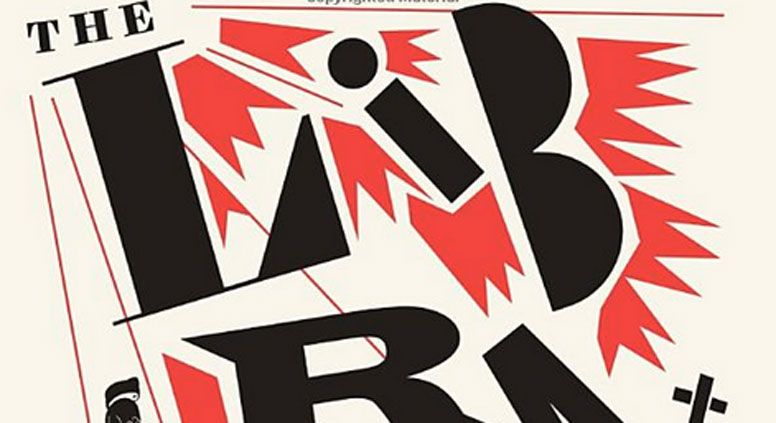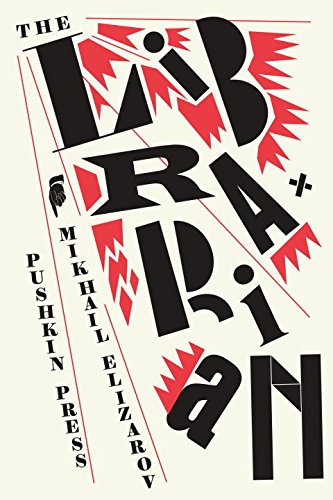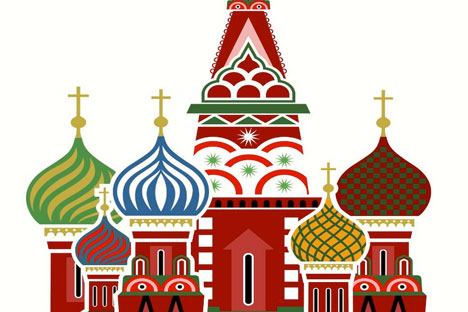'The Librarian': Philosophical parable or fascist nostalgia?

 |
| The Librarian by Mikhail Elizarov. Pushkin Press, 2015. Source: Amazon |
Mikhail Elizarov won the prestigious Russian Booker Prize in 2008 with his story of war-like “libraries” and their battles over copies of old novels that give their readers magical powers. The tale is studded with bayonets, broken glass, butchers’ cleavers, spiked clubs, axes, hammers and flails. This is not the sedate ride a reader might expect from a novel called “The Librarian”, which centers on the works of Dmitry Gromov, an invented, second-rate, Soviet author. Translator Andrew Bromfield has calmly waded through the gore to bring us the “Battle of Neverbino” or compound neologisms like “Yeltsinhater”.
Before reaching the main narrative, Elizarov records the lives of early “librarians” including Yelizaveta Mokhova, whose readings from “The Book of Strength” turn a ward full of comatose old women into a bloodthirsty army. These tales form a Silmarillion-style prehistory in Elizarov’s mythopoeic universe and there are moments of fleet-footed humor, like the image of a bedridden eighty-year-old, temporarily revitalized, skipping “lightly over lockers and beds, like a goat.”
The 2008 award divided the Booker committee. Alexander Kabakov resigned from the committee in protest at the decision to give the prize to this “worthless, fascist trash” while the jury leader, Evgeny Sidorov felt that what matters is how far an author “succeeds in traveling to the depths of man’s soul…” The controversy rested on the question of how Elizarov’s novel dealt with the past. Roman Arbitman, writing for Profile Magazine, described it as a work “imbued with some kind of hysterical nostalgia for a Soviet Atlantis that has sunk into oblivion.”
Elizarov admits that he remembers his Soviet childhood “with great warmth” and is interested in exploring values that have been lost under the capitalist system, but his ideas are more complex than the debate suggests. “The Librarian” starts with a quotation from Platonov’s dystopian satire “The Foundation Pit” and Elizarov’s cartoon violence obscures a philosophical parable, exploring the power of ideas.
When the narrator, Alexei Vyazintsev, reads Gromov’s novel known as “The Book of Memory”, it conjures up for him “an entirely invented childhood,” a montage of sleigh rides and snowball fights, May Day holidays, Young Pioneer camps and the smell of new textbooks. Flowers radiate in all directions from a “white as sugar” statue of Lenin, who “towered up on his granite pedestal.” The crucial thing about this idyll is that it is fictional; Alexei is prepared to fight for his ideas, but that does not make them true.
Powerful books are central literary devices in numerous novels and Russian authors have been pioneers in this metafictional realm. Bulgakov’s “Master” rewrites the story of Christ, and Nabokov’s work is full of invented books and authors, like the poet John Shade in “Pale Fire”. Eccentric cults are another common feature. Yuri Mamleyev’s grotesque and satirical “Sublimes”, translated into English last year, centers on a strange satanic group living in a village near Moscow, obsessively seeking divine truth through extreme violent or sexual practices. Vladimir Sorokin’s murderous Oprichniki or the 23,000 Children of Light, awakened by a meteorite in his bizarre “Ice Trilogy”, inhabit postmodern, post-Soviet satires that parallel Elizarov’s fantasies.
Sorokin has praised “The Librarian” for its depiction of “Soviet power as an endless squabble”; the book’s many battles also represent the struggle to find meaning in a post-ideological society. With its adolescent combination of existential nihilism and video-game violence, Elizarov’s work is easily underestimated. Like the late Terry Pratchett’s exploration of religious belief in “Small Gods”, “The Librarian” is a novel that makes profound questions playful and playfulness profound.
All rights reserved by Rossiyskaya Gazeta.
Subscribe
to our newsletter!
Get the week's best stories straight to your inbox
